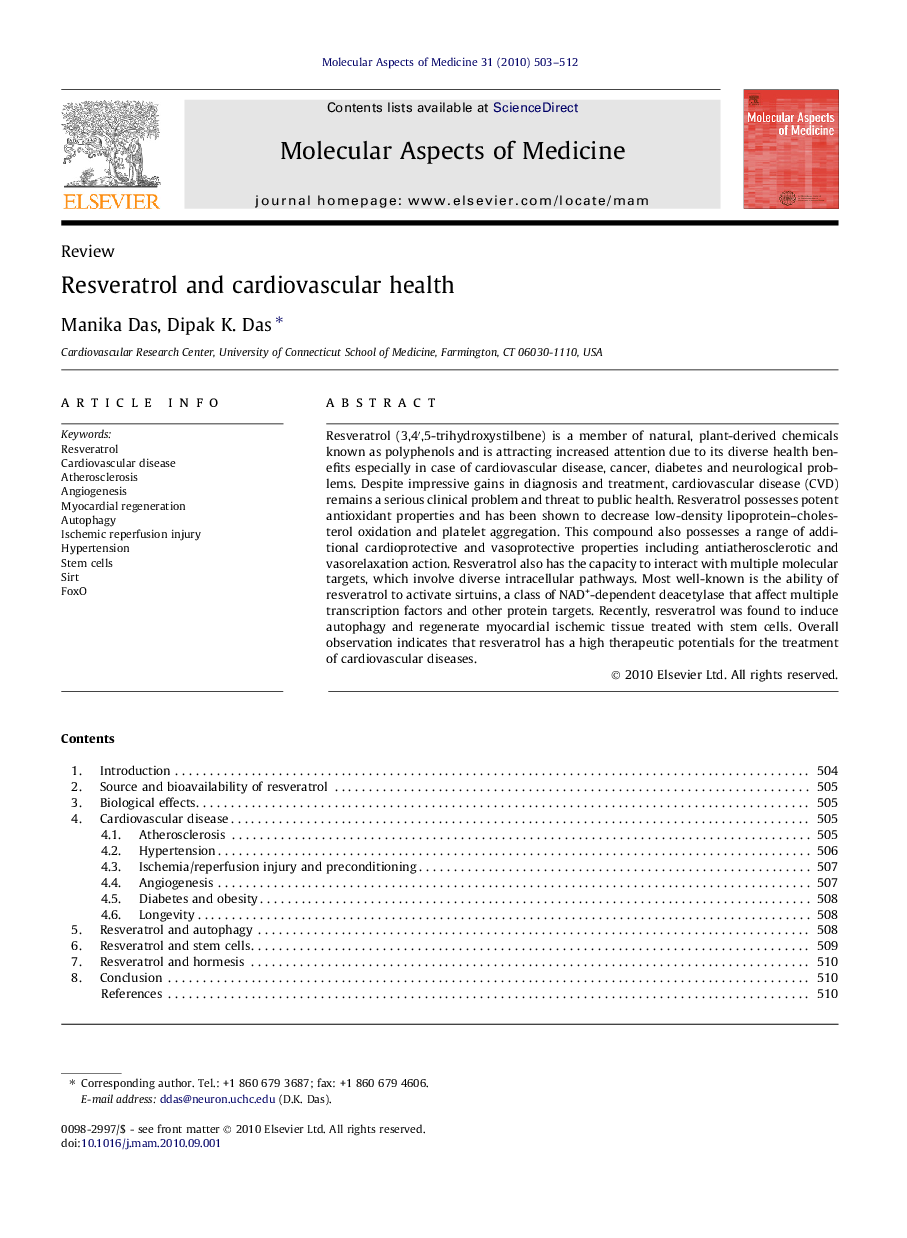| Article ID | Journal | Published Year | Pages | File Type |
|---|---|---|---|---|
| 8341653 | Molecular Aspects of Medicine | 2010 | 10 Pages |
Abstract
Resveratrol (3,4â²,5-trihydroxystilbene) is a member of natural, plant-derived chemicals known as polyphenols and is attracting increased attention due to its diverse health benefits especially in case of cardiovascular disease, cancer, diabetes and neurological problems. Despite impressive gains in diagnosis and treatment, cardiovascular disease (CVD) remains a serious clinical problem and threat to public health. Resveratrol possesses potent antioxidant properties and has been shown to decrease low-density lipoprotein-cholesterol oxidation and platelet aggregation. This compound also possesses a range of additional cardioprotective and vasoprotective properties including antiatherosclerotic and vasorelaxation action. Resveratrol also has the capacity to interact with multiple molecular targets, which involve diverse intracellular pathways. Most well-known is the ability of resveratrol to activate sirtuins, a class of NAD+-dependent deacetylase that affect multiple transcription factors and other protein targets. Recently, resveratrol was found to induce autophagy and regenerate myocardial ischemic tissue treated with stem cells. Overall observation indicates that resveratrol has a high therapeutic potentials for the treatment of cardiovascular diseases.
Keywords
Related Topics
Life Sciences
Biochemistry, Genetics and Molecular Biology
Biochemistry
Authors
Manika Das, Dipak K. Das,
